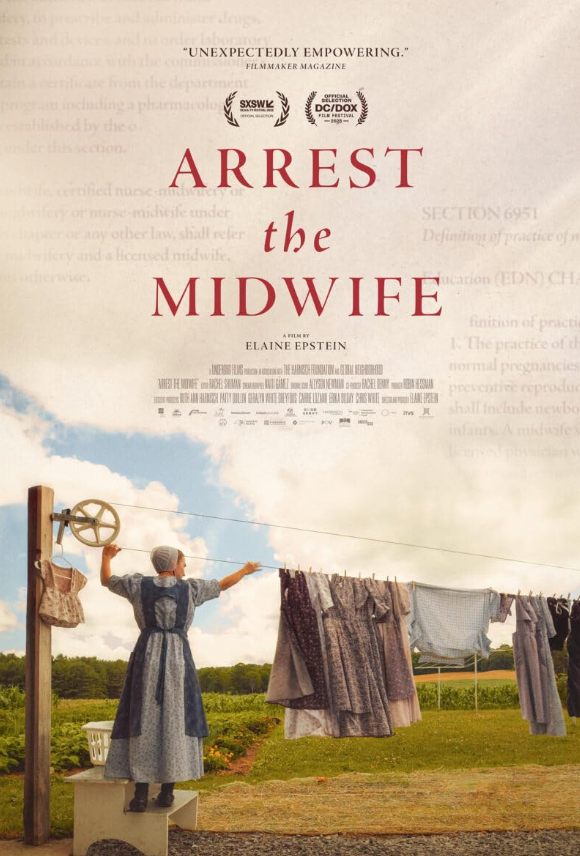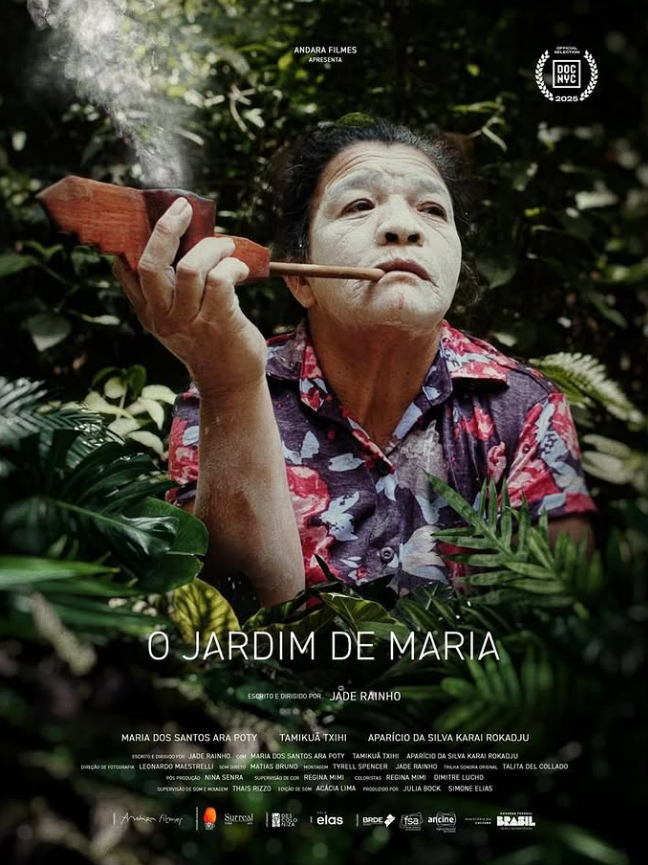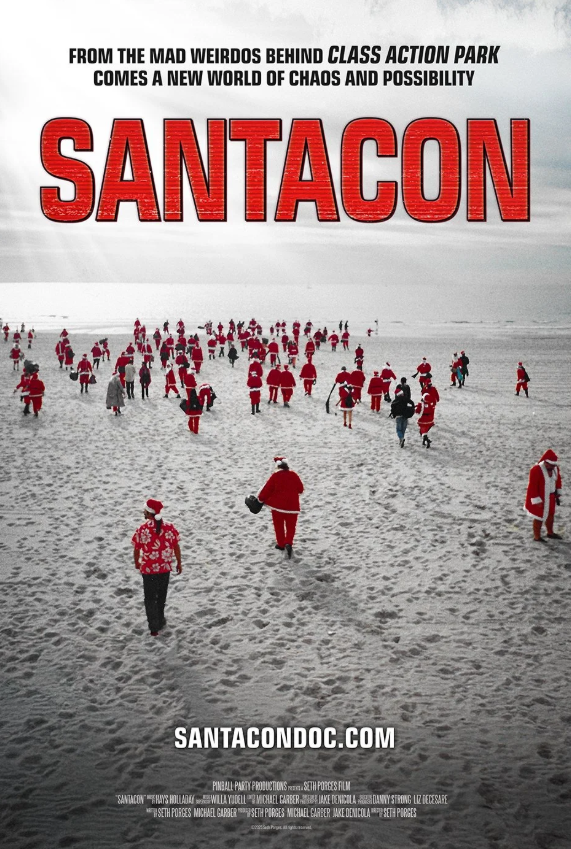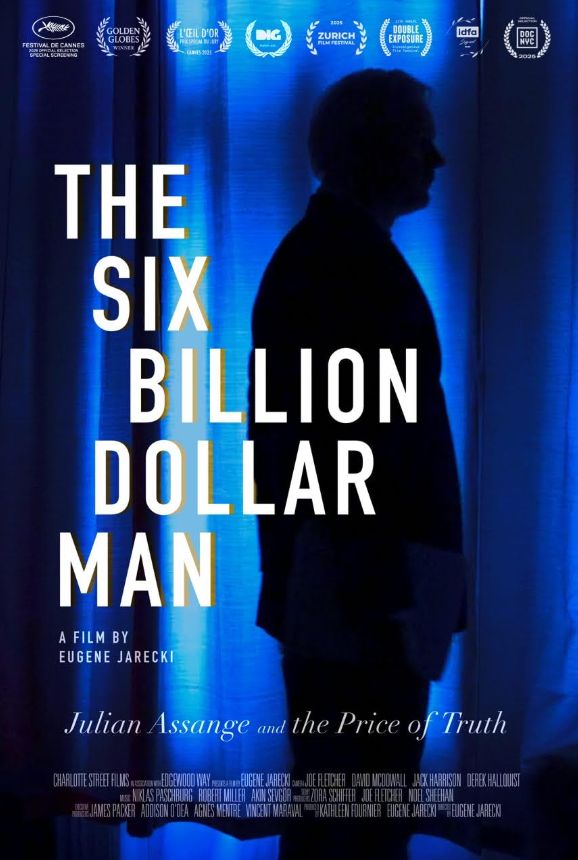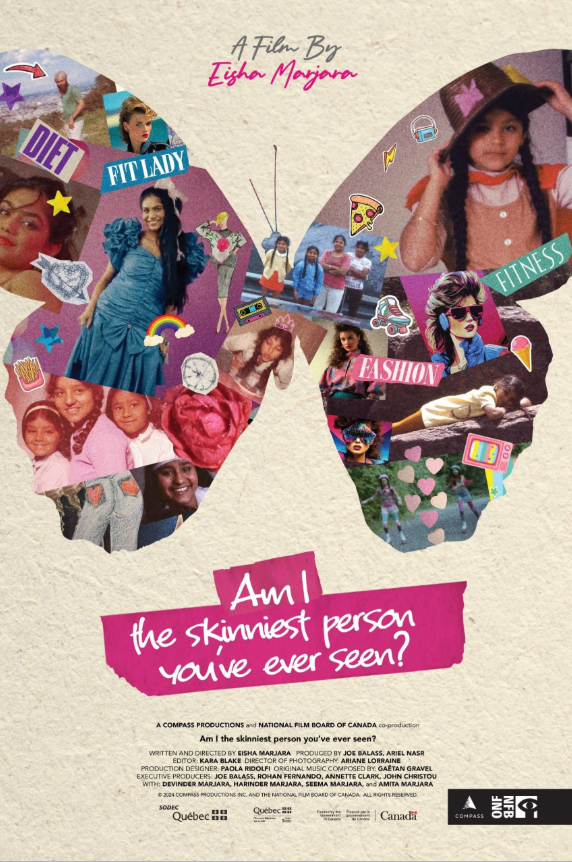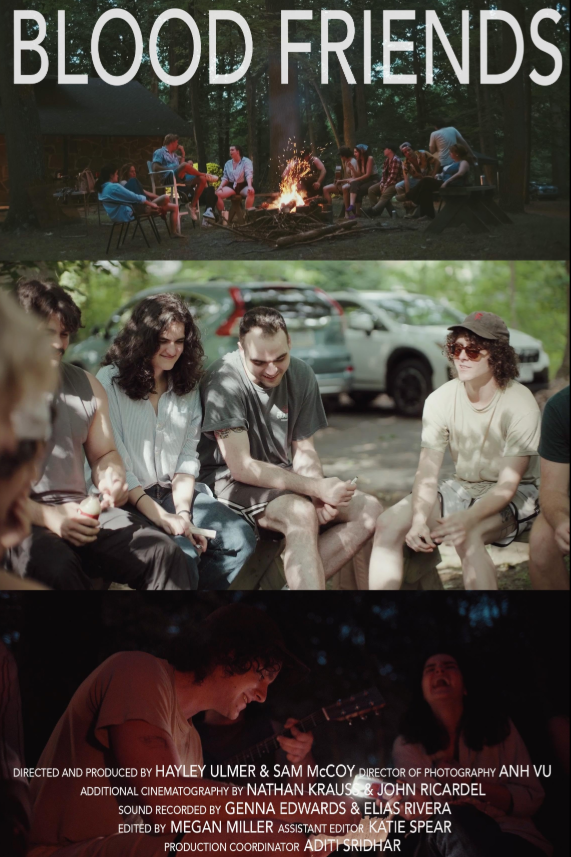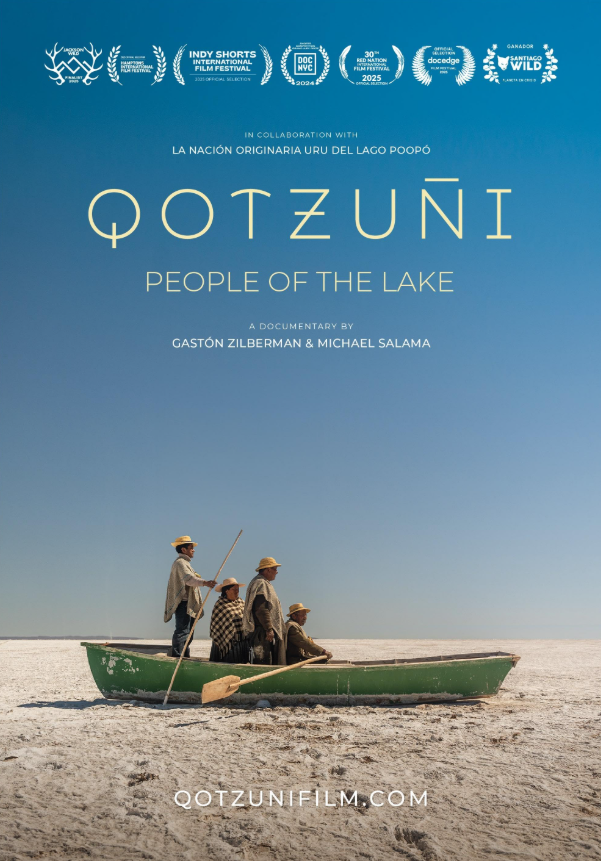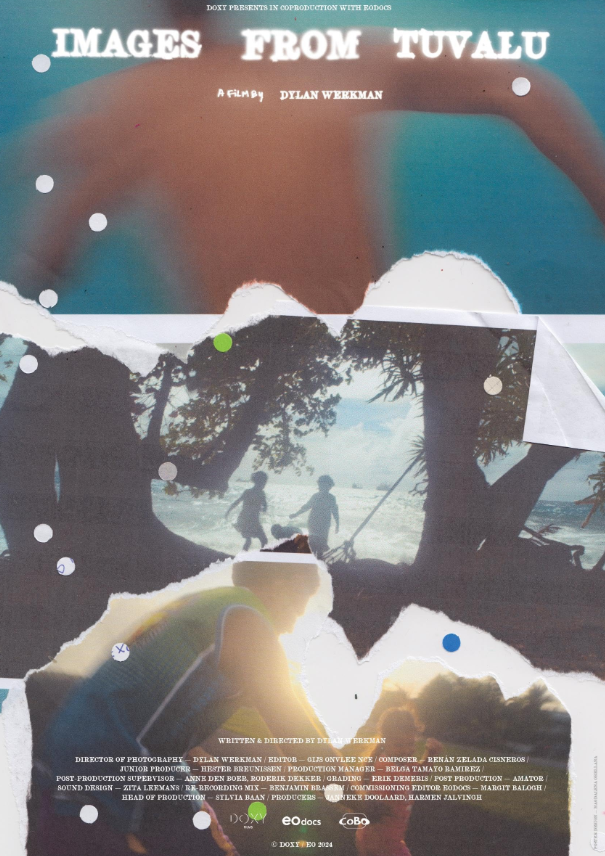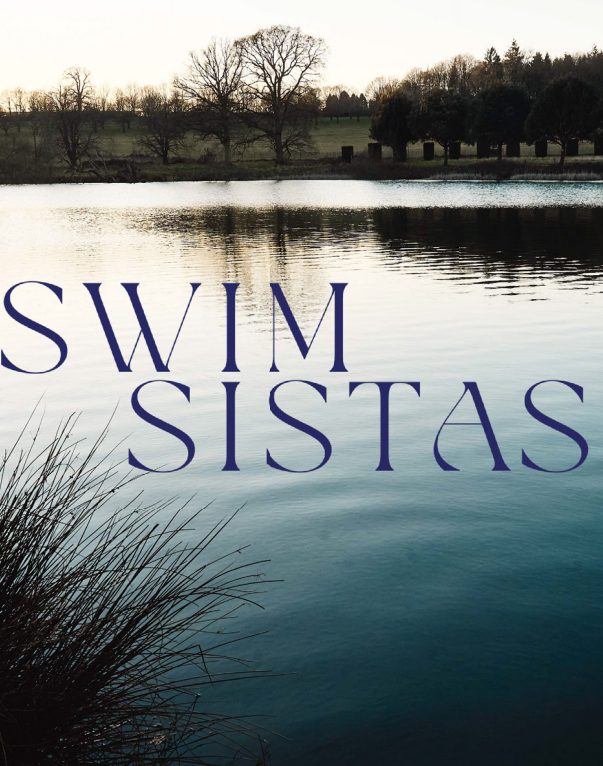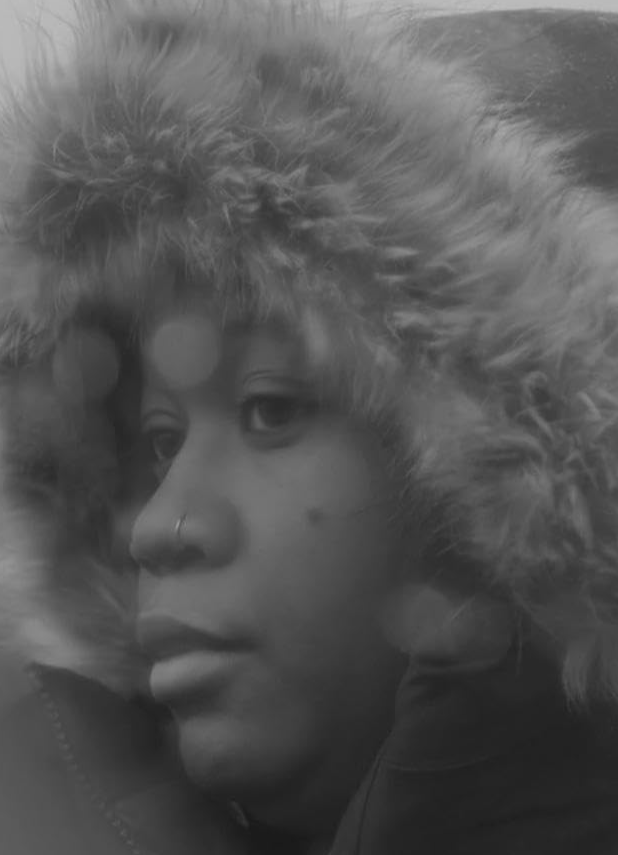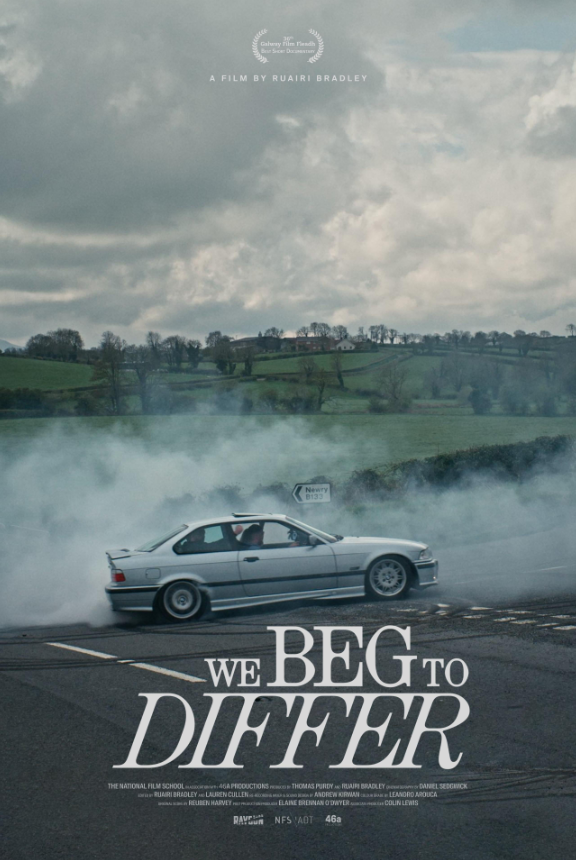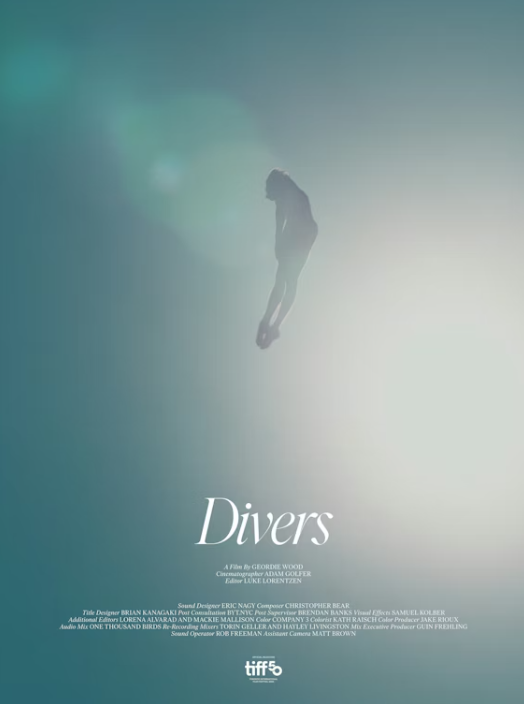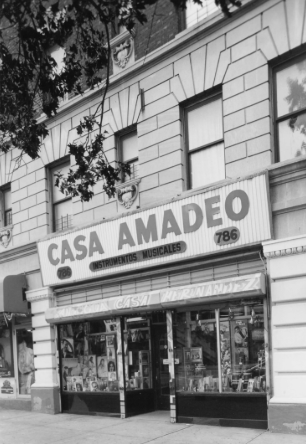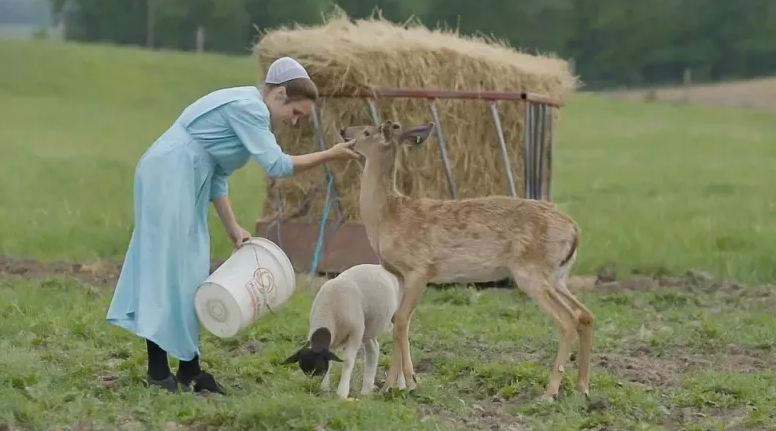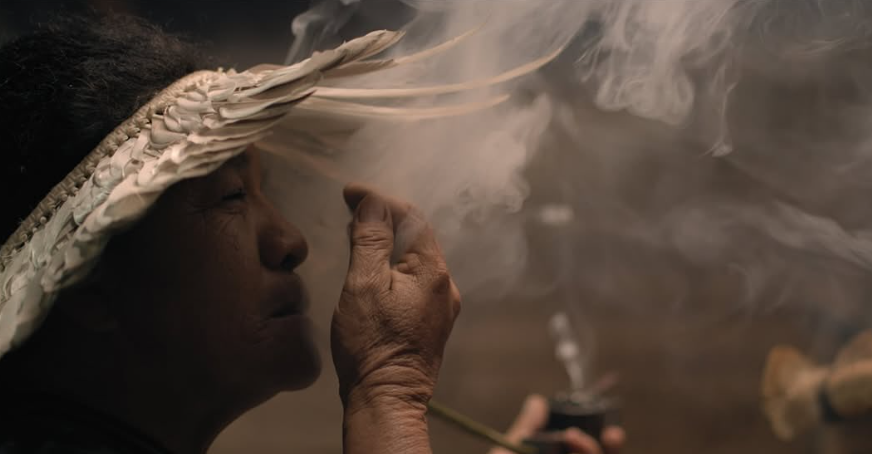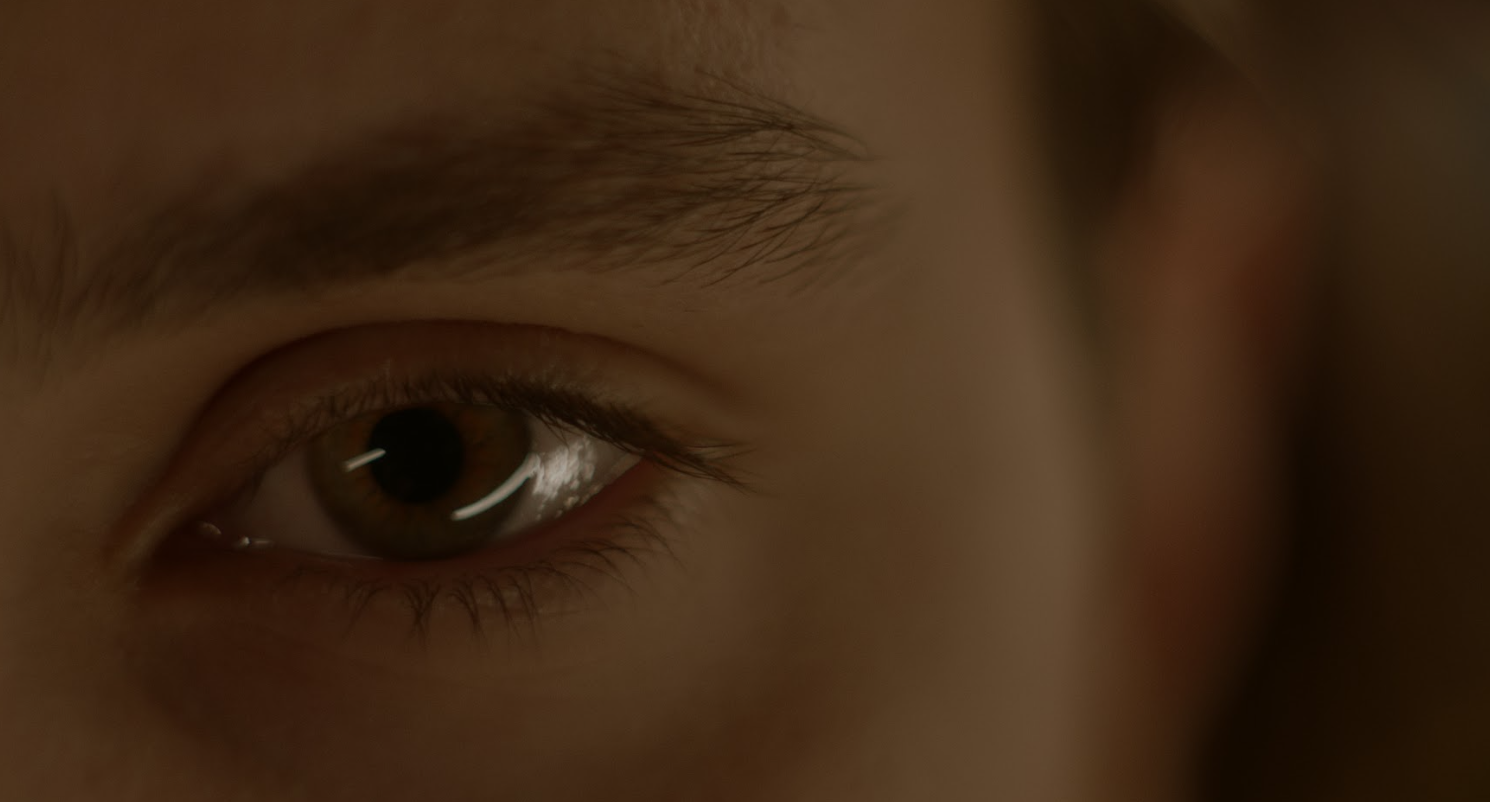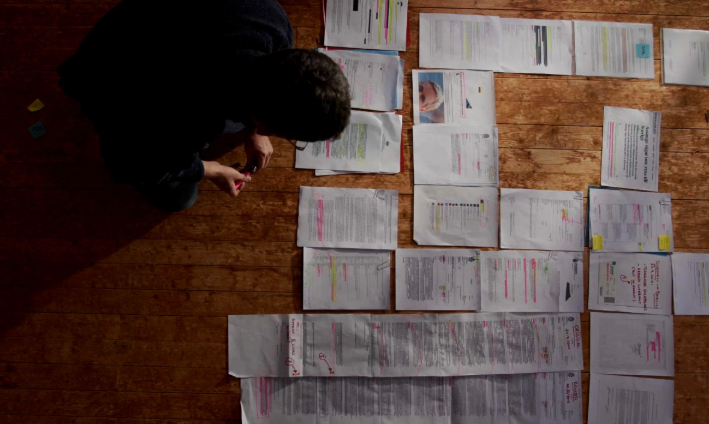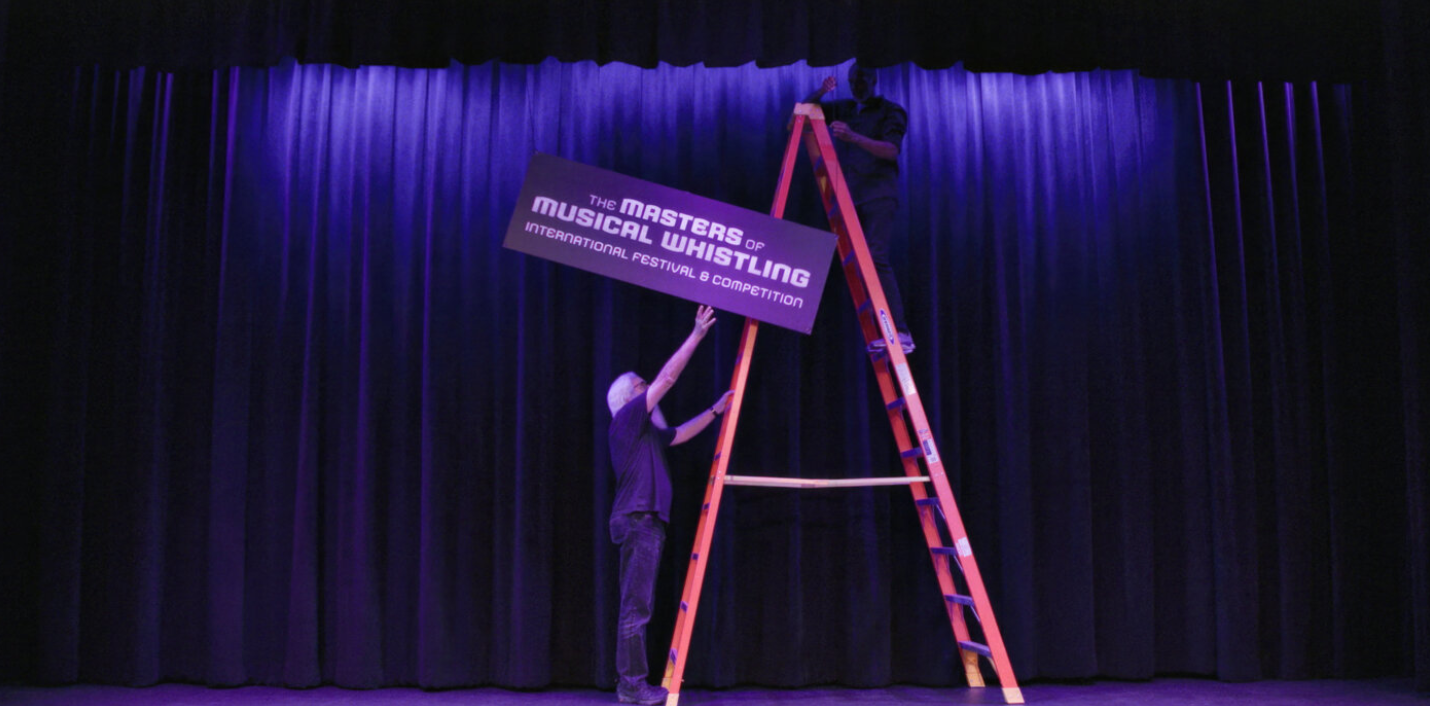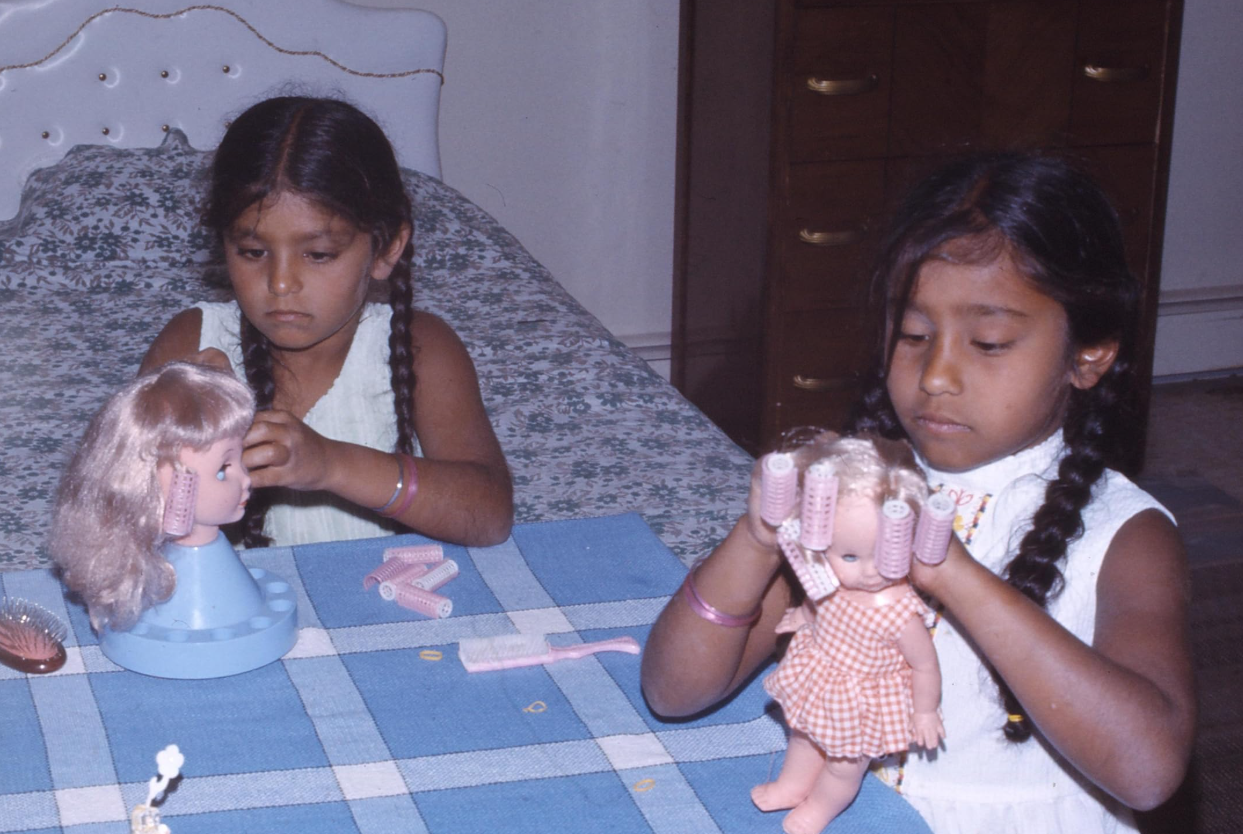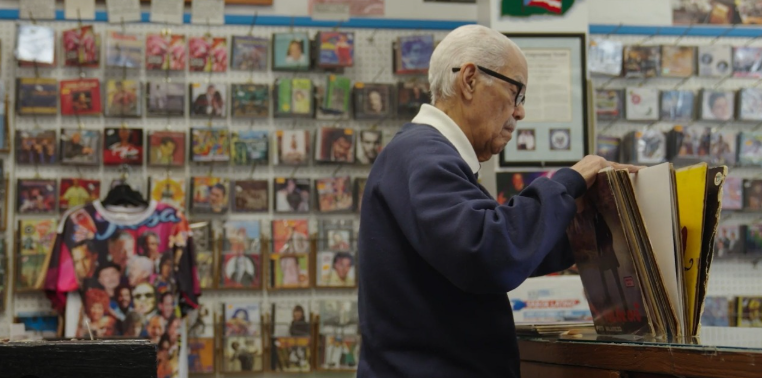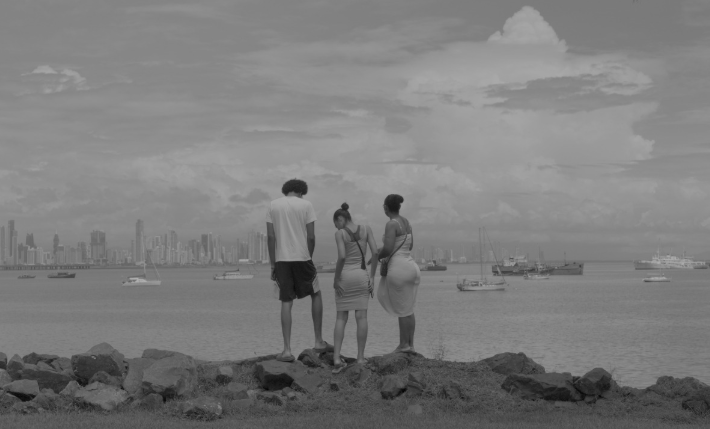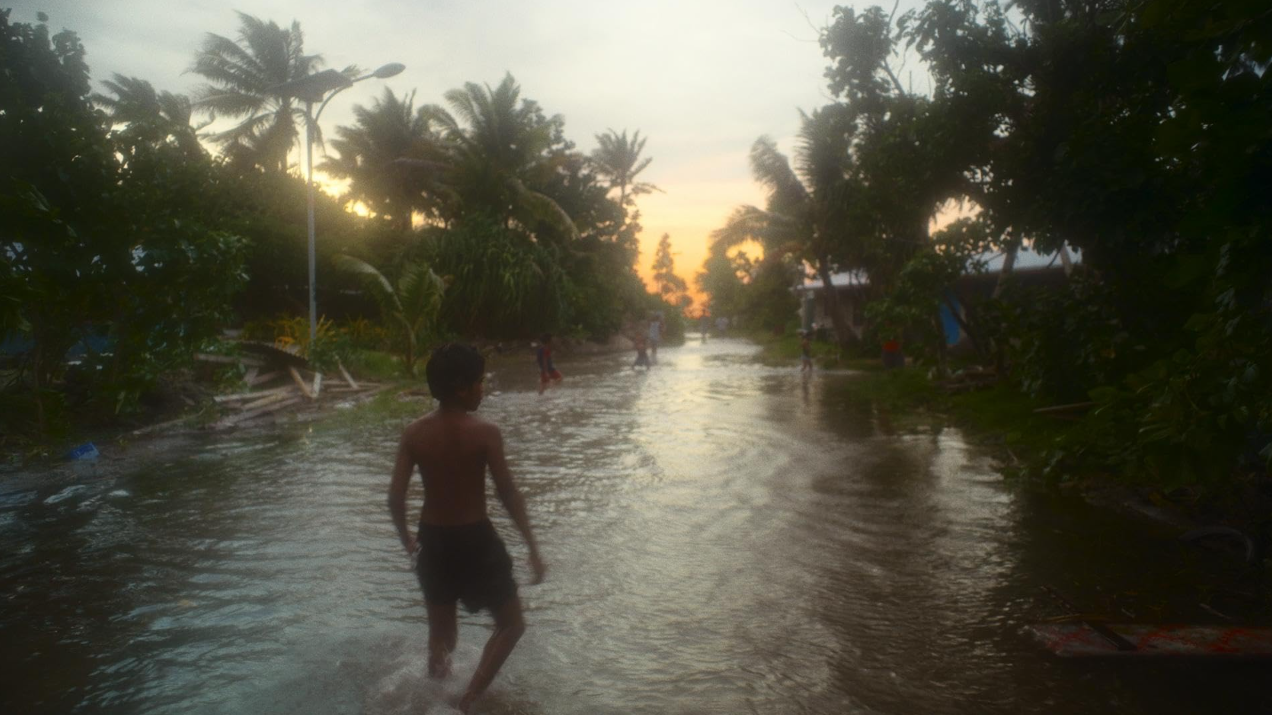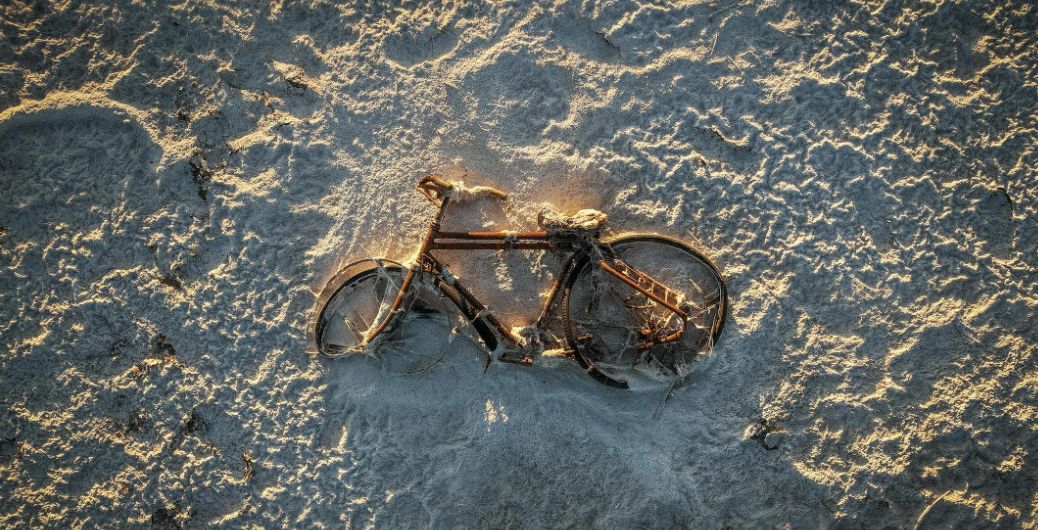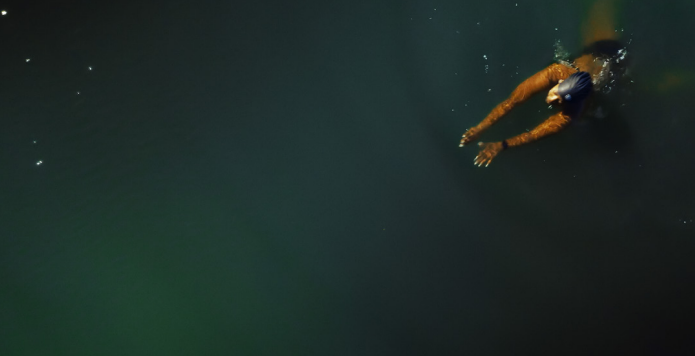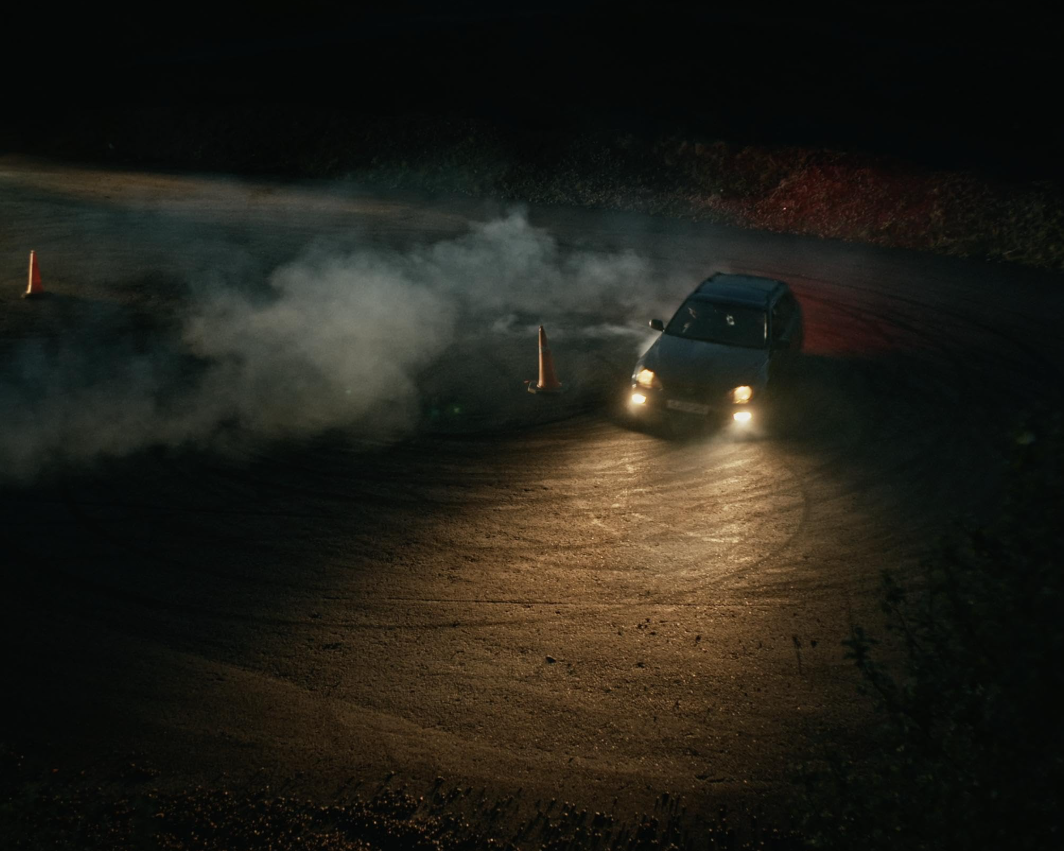16th Annual DOC NYC Film Festival - 2025
The 16th Annual DOC NYC Film Festival runs November 12-30, 2025!!!
Check Back for Reviews of Select Features and Shorts!!!
Selected Feature Films
No Mercy
⭐️⭐️⭐️⭐️
Santacon
⭐️⭐️⭐️⭐️
The Six Billion Dollar Man
⭐️⭐️⭐️⭐️
Whistle
⭐️⭐️⭐️
The Garden of Maria
⭐️⭐️⭐️
Arrest the Midwife
⭐️⭐️⭐️⭐️
Benita
⭐️⭐️⭐️⭐️
Selected Short Films
Blood Friends
⭐️⭐️⭐️
Qotzuñi: People of the Lake
⭐️⭐️⭐️⭐️⭐️
Images from Tuvalu
⭐️⭐️⭐️⭐️
Swim Sistas
⭐️⭐️⭐️
Exodus
⭐️⭐️⭐️⭐️⭐️
We Beg to Differ
⭐️⭐️⭐️
Divers
⭐️⭐️⭐️⭐️
Arrest the Midwife
⭐️⭐️⭐️⭐️
Feature Film (Documentary)
Film Production Companies: Underdog Films, Foothill Productions and
InMaat Foundation
Rating: NR / Run Time: 78 minutes
Language: English
Director: Elaine Epstein
Writer(s): Elaine Epstein and Rachel Shuman
Starring: Melissa Carman, Elizabeth Catlin, Linda Hamilton, Lissa Horning,
Linda Schutt and Michael Sussman
“Being a midwife is definitely a calling.”
For as long as childbirth has existed, women have helped other women deliver their babies. Out of that, the profession of midwifery emerged. Like many healthcare paths, it’s something people come to out of passion and calling. But as medicine professionalized in the early 1900s—led largely by men—midwives were pushed aside in favor of the growing medical establishment. Their hands-on knowledge was devalued, women were unable to attend medical school, and the financial incentive of hospital-based births played a major role in the shift. Today, midwifery is legal, but not evenly. Certified Nurse Midwives (CNMs) are recognized in all 50 states, while Certified Professional Midwives (CPMs) are legal in most—but not all—states. One of the states where CPMs are not recognized is New York.
In Yates County, New York, home births are common among several Mennonite communities, and midwives are relied upon as an essential part of their way of life. But after a newborn died shortly after birth, CPM Elizabeth “Liz” Catlin was arrested and charged with 95 felony counts—the most brought against any midwife in U.S. history. Her case triggered a ripple effect. Another midwife, Melissa Carman, moved her practice to Pennsylvania to avoid similar legal risks, only to face charges as well. The third, Lissa Horning, a Groffdale Mennonite who stayed behind to shoulder the increased demand, soon found herself targeted too. All three were accused of practicing without a license—not because they lacked training, but because New York refuses to recognize CPM certification.
The documentary follows these women and the communities that support them as they fight back. They petition the state assembly, organize locally, and work to advance the Community Midwifery Bill—which, after years, still hasn’t reached the floor for a vote. Director Elaine Epstein brings a personal perspective: her first child was delivered with the help of a midwife, but when she prepared to have her second, many of those resources had disappeared under increasing political and systemic pressure. Her film takes viewers inside Mennonite and Amish communities, using fly-on-the-wall footage and straightforward interviews to show who these women are and why their work matters.
The film doesn’t shy away from the larger systemic issues at play, including the gendered power dynamics in childbirth, the financial incentive behind hospital-based deliveries, and the documented benefits of midwifery care. The documentary presents statistics showing that maternal mortality rates have doubled over the last decade, and the U.S. needs at least 22,000 more midwives to meet WHO standards. Yet CPMs remain unrecognized in states like New York, leaving communities underserved and practitioners vulnerable. Epstein makes her point clearly, and the testimonies from the midwives and their clients reinforce the urgency behind their fight. All in all, this film reveals how a community can come together for a common goal, and while there is still work to be done, it is a rallying cry to fight for the rights of women to be able to choose how they go about giving birth and not have challenges placed in their way.
Review by Cinephile Mike
Benita
⭐️⭐️⭐️⭐️
Feature Film (Documentary)
Rating: NR / Run Time: 81 minutes
Language: English
Director: Alan Berliner
Writer: Alan Berliner
Starring: Benita Raphan, Alan Berliner, Roslyn Raphan and Shari Spiegel
“She doesn’t conform to be accepted. She was marching from a
different drummer from adolescence on. She was totally unpredictable.”
On January 10, 2021, filmmaker Benita Raphan was tragically found dead by suicide. One of the people notified was her friend — and self-appointed mentor — filmmaker Alan Berliner. Berliner had served as a creative advisor on several of Benita’s projects but always recognized the differences between them. They never fully collaborated because, while Benita made short films about artists and historical figures, Berliner focused more on long-form personal essays about his own life and family. In the aftermath of Benita’s passing, her family reached out to Berliner and asked if he would consider finishing her last film. Recognizing the differences in their approaches, he realized he would not be the best person to do that — but he did want to take the opportunity to create a portrait of the life of the tortured artist he came to understand Benita was.
Granted permission by her family, Berliner goes through journals, home movies, archival interviews and old photographs to construct a portrait of an artist who appeared one way on the surface but was suffering deeply within. As the film unfolds, we see how certain themes — while not explicitly stated — were infused in Benita’s work. Through excerpts from her journals, we learn about the challenges she faced connecting with others, stemming from strained relationships with her parents and her own disappointments in love.
In shaping this portrait, Berliner incorporates a series of talking-head interviews, either conducted by him (we hear his voice off-camera) or drawn from archival excerpts. We hear from her mother, Roslyn Raphan; collaborators such as composer Hayes Greenfield (who also forms part of the trio responsible for the wondrous, almost dreamlike score alongside Robert Miller and Pierre Földes); friends like Shari Spiegel (Berliner’s wife, who introduced him to Benita); and her former boyfriend, Eric Hoffert — a member of the band The Speedies, who gave her one of her first jobs as a photographer.
More than just a filmmaker and photographer, Benita also taught at the School of Visual Arts and touched many lives, including that of her student Yumi Nakamura, who provides thoughtful insight into her mentor. Benita struggled — she longed to create the work she believed in but often lacked the funding or opportunities she needed. The film touches on some of the causes behind her struggles, painting a picture that reminds us how essential it is to look beneath the surface. The work of an artist often reflects hidden emotions and pain, and that’s what Berliner captures here: an honest, unflinching look at Benita — the good, the tragic, and the unexpected.
In addition to conducting interviews and assembling all the material, Berliner also serves as the editor, cleverly sculpting a film that feels more like a visual essay than a traditional documentary. We’re treated to montages of Benita’s work and photos set to a mix of classical compositions and the ethereal soundscape by Greenfield, Miller, and Földes. It’s clear there is great love and respect between Berliner and Benita. All in all, this moving portrait of a tortured artist will inform you about an artist you may never have heard of, but definitely left a mark on those closest to her.
Review by Cinephile Mike
The Garden of Maria
⭐️⭐️⭐️
Feature Film (Documentary)
Film Production Companies: Andara Films, Cadju Films and
Surreal Hotel Arts
Rating: NR / Run Time: 72 minutes
Language: Portuguese with English Subtitles
Director: Jade Rainho
Writer: Jade Rainho
Starring: Maria dos Santos Ara Poty, Tamikuã Txihi
and Aparício da Silva Karai Rokadju
“It’s our life. We have rights.”
On the outskirts of São Paulo, Brazil’s largest city, lies a hidden gem of resistance and renewal: the Indigenous Land of Jaraguá. Once abandoned and used as a sewer, this land has been transformed into a thriving ecosystem by Maria dos Santos Ara Poty, an elder of the Guaraní Mbya community. With determination, vision, and the support of local residents, Maria has preserved not only the land itself but the traditions, culture, and identity of her people—standing as a powerful reminder that true progress must respect the societies that came before.
Maria and her family moved onto the land, constructing homes from recycled materials. Together with other locals, they built a landfill despite opposition from authorities and developed gardens producing a variety of crops, including plants with medicinal properties. Maria speaks with remarkable openness and conviction, focused entirely on protecting her community’s identity. She boldly states she will not stop fighting until the end of her life, and her leadership commands respect naturally—she doesn’t demand it, but it is clear in the way people respond to her.
The film captures both the labor and the everyday life that makes the community thrive. We see members taking part in Indigenous People’s marches, planting trees, and tending the land. Children are shown swimming in a water-filled bucket next to their homes, while others paint symbolic animals on buildings. There is a sense of joy and pride in even the simplest tasks, highlighting how this land is not only a place to live but a symbol of cultural survival. Cinematographer Leonardo Maestrelli provides stunning nature shots, as well as intimate glimpses of the people as they hike, work, and simply exist in this space. These images give the audience a clear sense of how deeply connected the community is to the land.
The subtle score by Talita del Collado blends tonal beauty with traditional Indigenous music, immersing viewers in Maria’s world. The soundtrack is interwoven with the natural sounds of the environment—the rustle of leaves, birdsong, and flowing water—making the viewer feel present in the landscape. First-time feature director Jade Rainho allows Maria to lead the narrative, letting her voice and perspective guide the audience without relying on outside commentary. We watch her give a walking tour of the land, showing how it sustains her community and the ways in which rituals, prayers, and everyday life intertwine. Rainho paints a portrait of a resilient society, one that refuses to be erased or sidelined in the face of urbanization and systemic pressures.
Through its focus on Maria and the Jaraguá community, the film emphasizes the importance of cultural preservation and self-determination. We see a people committed to maintaining their traditions while engaging with the world around them. The documentary celebrates both the beauty of the land and the determination of those who fight to protect it, offering an intimate and immersive view of a society that refuses to compromise its identity. Even as the film closes with subtitles reminding us of the continued pressures and struggles the community faces, the story remains primarily a celebration of their resilience and dedication. All in all, this documentary sheds light on Brazilian history and reminds that advancement for advancement’s sake is not always the answer when it comes to respecting identity.
Review by Cinephile Mike
No Mercy
⭐️⭐️⭐️⭐️
Feature Film (Documentary)
Production Companies: Tondowski Films, Flair Film, ORF Film, ZDF and Arte
Rating: NR / Run Time: 105 minutes
Language: English and French, German, Russian and Persian
with English subtitles
Director: Isa Willinger
Writer: Isa Willinger
Starring: Ana Lilly Amirpour, Catherine Breillat, Jackie Buet, Margit Czenki,
Virginie Despentes, Alice Diop, Value Export, Nina Menkes, Marzieh Meshkini,
Mouly Surya, Céline Sciamma, Joey Soloway Monika Treut and Apolline Traoré
“Do women make different, harsher films? And what does harsh even mean?”
Documentary filmmaker Isa Willinger — whose past work has explored topics ranging from artificial intelligence and pornography to the global plastic crisis — returns with a reflection on her own career and those of fellow female and nonbinary directors. The film centers on a statement made early in her career by one of her inspirations, the cult Ukrainian director Kira Muratova: “The truth is, women make harsher films.” Muratova’s subversive, avant-garde style often challenged Soviet norms, and her words serve as a provocation that Willinger now revisits through a contemporary lens.
There has long been a double standard for male and female filmmakers. When controversial content appears, male directors are often praised for their boldness while female directors are questioned for their choices. As one filmmaker interviewed here observes, “No one asks Scorsese why he creates greasy characters.” At a Cannes press conference, Tilda Swinton once reminded audiences that women have been making films for over eleven decades — beginning with Alice Guy-Blaché, one of the very first filmmakers in history. Gender politics have long dictated that women couldn’t make dark, challenging films, but No Mercy sets out to interrogate that assumption.
To explore this idea, Willinger travels to meet a number of acclaimed female and nonbinary filmmakers — including Ana Lily Amirpour, Alice Diop, Joey Soloway, Nina Menkes, and Valie Export — each offering unique perspectives on the representation of women on screen and behind the camera. Intercut with these conversations are clips from their films, as well as from a wide range of works spanning cinema history. We go as far back as Alice Guy-Blaché’s 1896 short The Cabbage Fairy and as recent as Apolline Traoré’s Sira (2022) and Alice Diop’s Saint Omer (2022).
The film’s central question grows more complex as the interviews unfold. Some participants assert that women indeed make harsher films, while others suggest they prefer to avoid depictions of violence because it isn’t always essential. This push and pull occasionally causes the message to feel a bit scattered, but the film’s rhythm — shaped by editors Lena Hatenur and Niki Mossböck — keeps it engaging as it moves between talking-head interviews and film excerpts. At times, repetition creeps in, but as the title suggests, No Mercy refuses to go easy on anyone who perpetuates tired assumptions about women in cinema — perhaps intentionally so. All in all, Willinger crafts a love letter to the filmmakers who have paved the way for the next generation to make their voices heard and their visions seen; and along the way, you may just discover a new film you hadn’t encountered before.
For an exclusive discussion with Writer and Director Isa Willinger, click HERE.
Review by Cinephile Mike
Santacon
⭐️⭐️⭐️⭐️
Feature Film (Documentary)
Film Production Companies: Pinball Party Productions
Rating: NR / Run Time: 87 minutes
Language: English
Director: Seth Porges
Writer(s): Seth Porges and Michael Garber
Starring: John Law, Chris Radcliffe, Rob Schmitt, Marci Macfarlane
and Chuck Palahniuk
“When ideas grow and become popular, things that start small can mutate. But we still need to find a way to live out our lives, even if this world doesn’t feel like it’s meant for us anymore.”
One of the most divisive nights in New York City is the annual Santacon. Every December, thousands of people from around the country descend on Manhattan for a massive citywide pub crawl. The official website sets rules—respect the police, don’t bother residents, proceeds go to charity—but the night still tends to be loud, messy, and chaotic, with plenty of drinking, vandalism, and disruption to local businesses. But it wasn’t always this kind of event, and the three-decade history behind Santacon is far stranger and darker than most participants would ever guess.
In the 1990s, the San Francisco Cacophony Society was known for creating unusual, off-the-wall events meant to shake up everyday life. They produced early versions of Burning Man and were behind happenings like the Black Tie Sewer Party, the Billboard Liberation Front, Kill Your TV, bridge-climbing excursions, and even a satirical event called PETA (People Eatin’ Them Animals). Their goal was to spark anarchy, surprise, and cultural disruption. In 1994, the society launched the first Santacon, created by member Rob Schmidt with support from John Law and Chris Radcliffe. The event was meant as a reaction to the consumerism of the 1990s—and it wasn’t subtle. The original group staged confrontational street performances, including hanging a Santa Claus effigy in a public square and handing out gifts to kids wrapped in pornography. The event quickly spiraled, spreading to other cities as fast as Burning Man grew, and bringing with it controversy, backlash, and safety concerns.
Seth Porges’ new documentary Santacon dives into this history and shows how the event transformed into the modern-day pub crawl New Yorkers know today. The film mixes interviews with original Cacophony Society members and organizers from around the country, exploring not just Santacon but the philosophy behind all their cultural “pranks.” One of the most compelling interviews is with writer Chuck Palahniuk, who notes that parts of Fight Club were inspired by the Cacophony Society—and by Santacon itself.
Editor Michael Garber keeps the film moving with a tight cut of talking-head interviews, clips from David Fincher’s Fight Club, archival news footage covering the Society’s various stunts, and decades’ worth of Santacon home videos captured by participants. The result paints a clear picture of how an anti-consumerist underground performance piece slowly evolved into one of New York City’s rowdiest holiday traditions. All in all, this documentary presents the origins of an event that has morphed over the years, and yet, still hasn’t lost its luster.
Review by Cinephile Mike
The Six Billion Dollar Man
⭐️⭐️⭐️⭐️
Feature Film (Documentary)
Film Production Companies: Charlotte Street Films, Edgewood Way
and WME Independent
Rating: NR / Run Time: 129 minutes
Language: English and Spanish and Swedish with English subtitles
Director: Eugene Jarecki
Writer(s): Joe Fletcher, Eugene Jarecki, Zora Schiffer and Noel Sheehan
Starring: Julian Assange, Edward Snowden, Daniel Ellsberg, Naomi Klein,
Stella Assange, Jen Robinson and Pamela Anderson
“When we have been lied to, by someone, anyone, would we rather not know?”
In 2006, WikiLeaks launched and quickly became one of the most controversial websites of its time. Created by computer programmer Julian Assange, the site focuses on publishing restricted or censored materials tied to war, spying, and government corruption. Things escalated in 2010 when WikiLeaks released classified footage from Iraq that showed incidents leading to several deaths, including journalists. This release caused an immediate global reaction.
Not long after, Assange was arrested on rape and sexual assault allegations. From the start, many questioned whether the charges were legitimate or whether they were being used as a way for the U.S., with support from Sweden, to eventually bring Assange into custody for WikiLeaks’ activities. What followed was a long, complicated stretch of political maneuvering: Assange seeking refuge in the Ecuadorian Embassy, Ecuador granting him political asylum, and a years-long standoff that reflected how much WikiLeaks had disrupted global relationships and political careers.
Eugene Jarecki’s The Six Billion Dollar Man organizes this history into clear chapters. The film begins with the early days of WikiLeaks and the fallout from the 2010 releases, then moves through the sexual assault allegations and the public response. It covers Assange’s years living in a single room inside the Ecuadorian Embassy, where we learn he was under constant surveillance. From there, the film follows the political shift in Ecuador: Rafael Correa had granted asylum, but his successor, Lenín Moreno, revoked it after negotiating a proposed $6 billion payment from the Trump administration. This led to Assange’s arrest, his imprisonment in a British facility where his health declined, and eventually his release in 2024.
While the film is focused on Assange’s experiences, it also highlights a much larger concern: the growing fear that speaking the truth can be dangerous, and that journalists face serious risks when exposing government wrongdoing. One of the more troubling parts of the story involves Sigurdur “Siggi” Thordarson, whose cooperation with the FBI and questionable testimony played a major role in the case against Assange. The documentary includes an interview with him where he appears to deny some of the information included in the indictment, raising questions about how solid the case really was.
The film also shows more personal moments. We learn how Assange met Stella Moris, a member of his legal team who later became his partner. The two had children during his confinement and married in 2022 while Assange was still in the British prison. There are also interviews with supporters who stood by him during the entire ordeal, including actress Pamela Anderson, who is filmed receiving upsetting news about Assange during her interview.
Throughout the documentary, Jarecki also touches on a key debate: whether Assange should be viewed as a hacker, a journalist, or something in between. This distinction matters because it shapes how people interpret his actions. Those who see him as a journalist view WikiLeaks as an act of transparency; those who see him as a hacker view it as a threat to national security. The film acknowledges this divide without trying to settle it for the audience.
A large part of the film’s impact comes from the work of editors Simon Dopslaf, David Fairhead, Mirja Gerle, Martin Reimers, and Zora Schiffer. They piece together over a decade’s worth of material — archival news footage, security camera recordings, photos, interviews, and fly-on-the-wall moments — into a clear and steady narrative. At times, the story even feels like a real-life political thriller. Jarecki clearly wants to present as complete a picture as possible, and while Assange is now free, the film ends with a reminder of how dangerous the landscape remains for people who challenge powerful governments. All in all, the documentary effectively provides a sequential timeline of all events, and fills in gaps that may be present in the minds of some, however, whether or not you believe Assange is a hero or a villain may not be answered as the film skewers heavily to one side.
Review by Cinephile Mike
Review by Cinephile Mike
*Previously published when screened at 76th Edinburgh International Film Festival
(August 2025).
Put Your Soul on Your Hand and Walk
—
Feature Film (Documentary)
Film Production Companies: Rêves d'Eau Productions and 24 Images
Rating: NR / Run Time: 113
Language: Farsi with English Subtitles
Director: Sepideh Farsi
Starring: Fatima Hassouna and Sepideh Farsi
“It feels weird to me when you describe this to me with your smile.”
Fatima Hassouna is a ray of sunshine. From the moment we meet her, her warm smile, hopeful tone, and resilience in the face of unimaginable hardship shine through. Over the roughly one year we spend with Fatima, we witness her confronting a relentless array of challenges—scarcity of food, constant fear, unstable shelter, and, perhaps most surprisingly, struggles with maintaining a reliable internet connection. Why does that matter? Because Fatima and the remaining ten members of her family live crammed into a single room or makeshift shelter in North Gaza, struggling to survive amid ongoing bombings and attacks.
Filmmaker Sepideh Farsi, barred from entering Gaza, began documenting by interviewing refugees fleeing the region. Through a connection, she met Fatima, a well-known photographer dedicated to capturing life in Gaza. Despite the chaos, Fatima continues to document moments both heartbreaking and hopeful—from children smiling amid rubble to the grim realities of war, including haunting images of victims, when she can; however, even this has become challenging.
Put Your Soul on Your Hand and Walk unfolds almost entirely through a series of unedited FaceTime calls between Fatima and Farsi over the course of a year. Farsi films her phone screen during these conversations, many of which could have been their last, as Israeli bombs fall relentlessly. Often, there’s a palpable tension waiting for the call to connect, making every successful connection a small victory. And in those moments, Fatima’s infectious smile fills the screen—though cracks in her façade appear, reminding us of the immense weight she carries.
When asked how it feels to be a Palestinian in Gaza, Fatima replies with quiet pride and a hopeful belief that things will eventually improve. It is this optimism that offers a flicker of light in an otherwise bleak landscape.
This film has received extensive media coverage given the gravity of the ongoing conflict it portrays. While I am fully aware of the broader Palestinian-Israeli situation, I hadn’t known Fatima’s story before watching. I’ve deliberately avoided revealing key developments here to keep the review spoiler-free. The documentary is powerful, raw, and deeply affecting. Although the repeatedly disrupted phone calls can sometimes feel frustrating, they also underscore the precariousness of Fatima’s reality. Filmmaker Sepideh Farsi and co-editor Farahnaz Sharifi interweave these intimate conversations with Fatima’s photography and global news footage, grounding this personal narrative within a larger context. The pacing slows at times, but the film remains timely and essential—a firsthand account of a situation too often reduced to headlines.
All in all, this is a film that will sit uneasily with many viewers but deserves to be seen. It’s a voice crying out from a place of turmoil, offering awareness and humanity amid conflict.
Out of respect for the current circumstances and the sensitivities involved, I have elected not to assign a star rating to this film.
Whistle
⭐️⭐️⭐️
Feature Film (Documentary)
Film Production Companies: Songbird Studios and Cayton Goldrich
Family Foundation
Rating: NR / Run Time: 84 minutes
Language: English and Spanish with English subtitles
Director: Christopher Nelius
Writer: Christopher Nelius, Al Hicks, Paula DuPré and Luke Mazzaferro
Starring: Carole Anne Kaufman, Molly Lewis, Yuki Takeda,
Anya Ziordia Botella, Davitt Felder, Lauren Elder, Jay Winston,
Gabriel Perkins and Curt
“Whistling is contagious.”
Once a year, the greatest whistlers from around the world arrive in Los Angeles to compete in the Masters of Musical Whistling — the largest competition of its kind. Each participant hopes to take home the ultimate title of World Whistling Champion. The three-day festival features three distinctive rounds: the first pairs competitors with a live band; the second, called hikifuki (a Japanese term meaning “self-accompaniment”), requires them to whistle while playing an instrument; and the final round is a performance of a classical piece.
The mastermind behind the entire event is former world champion Carole Anne Kaufman. A hairdresser for more than two decades, she is the driving force behind the festival, taking on the financial and emotional strain required to pull off something of this scale. With the help of a devoted group of volunteers — many of whom are her longtime clients — Kaufman gives competitors the chance to chase that top prize. This festival is her passion and, as she notes, her legacy.
Throughout the film, we meet a roster of hopefuls from around the globe, some returning contenders and some newcomers. Among them: Molly Lewis, the LA-based whistler whose credits include the Barbie soundtrack and performances with Dr. Dre; Yuki Takeda, a multilingual musician from Japan who consistently places near the top but has never claimed the championship; Anya Ziordia Botella, a Spanish performer from a musical family who loves taking risks onstage; Jay Winston, an opera-singer-turned–New Jersey high school teacher with a sweet tooth; and Lauren Elder, a former world champion and seasoned musical theatre artist with a flair for performance. The film checks in with each competitor, exploring their history with whistling, their relationship to the festival, and their performances across all three rounds.
We also witness the deliberations of Head Judge Ryosuke Takeuchi and judges Derek Bodkin and Melodee Fernandez, along with the emotional aftermath each performer experiences on and off the stage. Through a mix of talking-head interviews and cinéma vérité footage, the documentary offers an intimate backstage view of this curious, charming, and deeply niche competition. There’s a clear affection for the craft, and director Christopher Nelius highlights the beauty and precision of an art form most people rarely think twice about.
Yet while the film captures the spirit of the event and brings attention to a community deserving of recognition, the stakes never feel particularly high — and the story sometimes struggles to create a deeper emotional connection. We learn the contestants’ backgrounds and motivations, but there’s a noticeable distance between viewer and subject, and only Kaufman’s impassioned reflections provide a moment of real resonance. All in all, it’s a charming and accessible look into a niche community, though the impact may be lighter than the filmmakers intend.
Review by Cinephile Mike
Am I the Skinniest Person You’ve Ever Seen?
⭐️⭐️⭐️⭐️
Short Film (Documentary)
Film Production Companies: Compass Productions and
National Film Board of Canada
Rating: NR / Run Time: 24 minutes
Language: English
Director: Eisha Marjara
Writer: Eisha Marjara
Starring: Rebecca Ablack, Pooja Dhanak, Leyani Kurera, Birva Pandya
and Eisha Marjara
“We were sisters, twins, and not worlds apart at all.”
Growing up in a society filled with images of ultra-thin models, glossy magazine spreads, and commercials that reinforced an idealized body type, sisters Eisha and Seema Marjara were inseparable — almost like twins despite being a few years younger than their eldest sister, Amita. They did everything together, including sharing the desire to be thin. One day, Seema suggested they go on a diet. Eisha agreed. Years of seeing smiling, slim figures in media — and a lasting desire to fit into a pair of Jordache skinny jeans — made it seem like the path to approval and happiness.
Once they committed, the sisters adopted four strict rules: no snacking, limit calories, say no to dessert, and don’t mess up. They believed these steps would get them to their goal. Wanting to avoid the choices they saw in their mother, the cook who always fed them, and wanting to fit into a society that equated heaviness with failure, they pushed forward. But the consequences became severe. While Seema eventually pulled herself out, Eisha could not. Her health deteriorated to the point of hospitalization.
Marjara presents an unflinching look at her experience with an eating disorder, narrating the film in a poetic, reflective voiceover. Family photos and home movies reveal the sisters’ childhood together, contrast against stark footage from Eisha’s hospital stay. To give further visual shape to her memories, actresses Rebecca Ablack and Pooja Dhanak portray Seema and Eisha, bringing tenderness to the dramatized moments that mirror real emotional beats from their past.
With original music by Gaëtan Gravel and crisp editing by Kara Blake, Marjara crafts a piece that is both a love letter to the bond she shared with her sister and a cautionary tale about the pressures that fuel unhealthy self-image. Her willingness to open up speaks to the ongoing challenges surrounding body identity, self-acceptance, and the grounding force of family. All in all, while difficult to watch at times, Marjara’s voice reaches outward with quiet strength, illuminating a struggle far more common than many are willing to admit.
Review by Cinephile Mike
Blood Friends
⭐️⭐️⭐️
Short Film (Documentary)
Rating: NR / Run Time: 19 minutes
Language: English
Director: Sam McCoy and Hayley Ulmer
|Starring: Cris C., Hayley U., Issac K., Monica E., Sophia C., Tali K.,
Theo S., and Zach S.
“We are what we decide we are to each other, and I’m very curious
about what that decision is going to look like.”
In response to the wave of true-crime–styled documentaries about sperm donation, along comes Blood Friends, a gentler and far more human take on the subject — one that focuses not on the donor, but on the offspring connected through him. In 2018, several of them took DNA tests, and as the matches appeared, one connection led to another. A group text formed, friendships developed, and before long, an annual reunion emerged where more than a dozen of the two dozen-plus siblings gather in person to reconnect.
It’s a genuinely compelling dynamic to watch. These siblings — some of whom have additional siblings through other parentages — come from all across the country and lead very different lives. We learn that they’re not all in constant contact throughout the year; the group chat tends to stay fairly quiet. But these yearly “Sperm Sibling Reunion” weekends, as one participant calls them, are treated almost like ritual. When they do come together, the joy is palpable: sitting around a fire, breaking into song, telling stories, or sharing a meal at a giant table lovingly prepared by several of the mothers. It’s clear that this limited time together means something real to them.
Notably, none of the siblings speak too negatively about the man whose donation led to their existence. He remains unnamed in the film, and the focus stays firmly on the relationships among the offspring themselves. For many, these may be the only siblings they truly have, and while some wish there were deeper year-round bonds, others acknowledge that life simply doesn’t allow it — they each have their own families, responsibilities, and emotional landscapes to navigate. For these 36 hours, though, all of that falls away as they settle into a shared space that feels both rare and affirming.
It’s a fascinating topic, and the affection among the siblings absolutely comes through. The cinéma vérité approach, sharply edited by Megan Miller, blends candid footage with talking-head interviews to give a sense of intimacy. Still, you can’t help but feel there’s more beneath the surface. Some members of the group appear only through fly-on-the-wall coverage, while others are extensively interviewed, creating an imbalance that leaves certain perspectives unexplored. All in all, directors McCoy and Ulmer offer a thoughtful and unique take on the idea of a found family — you just wish the film had dug a little deeper and given each voice the same space to speak.
Review by Cinephile Mike
Casa Amadeo
⭐️⭐️⭐️
Short Film (Documentary)
Rating: NR / Run Time: 15 minutes
Language: English and Spanish with English subtitles
Director: Ariana Marie Luque
Starring: Miguelito Amadeo
“Now you walk around with your phone in your pocket and
all of the music in the world, for free.”
In the Longwood section of the Bronx sits the historic Casa Amadeo, antigua Casa Hernández, the oldest Latin music store in New York City. With a spirit reminiscent of the stores in High Fidelity or Empire Records, this shop has been lovingly run by Miguelito “Mike” Amadeo since 1969. Upon arrival, you may find Mike playing maracas, dancing with customers, engaging in conversation with locals, or posing for selfies with visitors. With a portion of the street named in his honor, Mike and his store stand as a living institution in the culture of the city.
This short documentary offers a glimpse into Mike’s life and his journey to purchase and operate Casa Amadeo, while preserving the Hernández name in tribute to the original owners, who opened the store in 1941. Mike’s personal story is woven into the film: arriving in New York in 1947 after finishing seventh grade in Puerto Rico, reconnecting with his father, a musician from the 1930s and 40s, serving in the military in Germany in 1957, and composing over 50 songs—some recorded by Celia Cruz, Felipe Pirela, Roberto Ledesma, and Willie Colon.
Amid the celebration of Mike and his store, the film doesn’t shy away from the challenges facing the industry. In an era where physical media stores are rapidly disappearing and people increasingly rely on computers and phones for music, shops like Casa Amadeo are becoming rare novelties. Mike notes the economic shifts: an album he once sold for $7.95 (purchased for $4) now costs $50 (purchased for $30), a reflection of the changing supply and demand in a digital world.
First-time filmmaker Ariana Marie Luque blends archival footage and photos of Mike with intimate, fly-on-the-wall shots of the store, allowing viewers to experience its atmosphere firsthand. While we hear only from Mike, his warmth and engagement with the community shine through, making the documentary both a personal portrait and a celebration of an enduring cultural landmark. All in all, this wonderful documentary shines a light on a New York historical institution, reminding us to shop local and recall a simpler time when communal experiences and shared passions were at the heart of music. (And yes, you may just be inspired to pop in and make a purchase.)
Review by Cinephile Mike
Divers
⭐️⭐️⭐️⭐️
Short Film (Documentary)
Rating: NR / Run Time: 7 minutes
Language: English
Director: Geordie Wood
Starring: Kyohei Arata, Davide Baraldi, Andrea Barnaba, Madeline Bayon,
Kimberley Benson, Annika Bornebusch, Genevieve Bradley,
Meili Carpenter, Emily Chinnock, David Colturi, Laura Dauffenbach
and Jean-David Duval
One of the highest dive platforms in the world is located in sunny Florida, at the Fort Lauderdale Aquatic Center. Designed to resemble the hull of a ship, the structure attracts swimmers from all over the world. Standing 27 meters (about 88 feet) tall, it combines multiple platform and springboard levels to accommodate divers of all skill levels.
Photographer and first-time filmmaker Geordie Wood doesn’t focus on the structure itself, though it’s beautifully captured in several shots. Instead, the film turns to the divers training to use it. There are no interviews, and the divers aren’t identified on screen, but the piece feels almost like a motion poem to the sport. As the athletes prepare and stretch, glimpses of fear, concentration, and wonder appear on their faces. Cinematographer Adam Golfer’s camera work puts the viewer right alongside them, while editor Luke Lorentzen cuts between intimate moments of preparation and breathtaking shots of divers in midair, as if freefalling into nothingness, accompanied by faint cheers from their peers.
Christopher Bear’s subtle score complements the visuals perfectly, calling to mind the awe-inspiring music of James Horner’s Titanic. Not that tragedy is suggested, but the sense of wonder is similar as we witness these moments. The combination of imagery, editing, and music makes Divers a love letter to the sport and to the athletes striving to show diving as the art form it truly is. All in all, this visually stunning short film may leave you wanting a bit more, or perhaps drive you to take your own leap, but it presents a sharp eye for detail and excites anticipation for Wood’s next project.
Review by Cinephile Mike
Exodus
⭐️⭐️⭐️⭐️⭐️
Short Film (Documentary)
Film Production Companies: Compass Productions and
National Film Board of Canada
Rating: NR / Run Time: 35 minutes
Language: English and Spanish with English Subtitles
Director: Nimco Sheikhaden
Starring: Trinity Copeland and Assia Serrano
“I just think that people believe that when you’re released from
prison that it’s the end of all your problems, but actually, problems
begin because now you have to live outside.”
In 2019, the Domestic Violence Survivors Justice Act was passed in New York State, allowing judges to resentence individuals when domestic abuse was a significant factor in their crime. Notably, the act applies both moving forward and retroactively. Nimco Sheikhaden’s documentary Exodus focuses on two young women—friends who met while serving time at Bedford Hills Penitentiary—whose life sentences were reduced under the DVSJA. Their release offers a second chance, but not without immense complexity.
One of these women is Trinity Copeland. A Troy, New York resident, Trinity was sentenced at 17 to 25 years to life for murdering her father. She had suffered abuse at his hands, though her mother Regina and brother Harlan only suspected fragments of the truth. Trinity ultimately served approximately 11 years before being released on parole in 2023. Now 28, she hopes to go to school, earn a degree, and rebuild her life, even as she works through the emotional terrain of reconnecting with family and reckoning with her actions.
We also meet Assia Serrano. Arrested at 19, Assia was working as a caretaker when her partner—who fathered her first child and whose second she was pregnant with—coerced her to steal money from an elderly woman in her care. The woman died from a blood clot after being restrained during the robbery. Assia was convicted of second-degree murder and robbery and served 17 years. As the first immigrant woman released under the DVSJA, she walked out of prison only to be immediately deported to Panama, permanently separated from her children. The film follows her attempts to secure clemency and find a path back to New York.
Shot in striking black and white by cinematographers Nancy Serna Guerrero and Skyler Knutzen, Exodus observes Trinity and Assia with empathy and restraint. Their interviews are candid and searching, and Sheikhaden incorporates voices from those who helped guide their cases and re-entry. There is hope here—Trinity begins college at the University at Albany, and Assia sees small but meaningful progress in her legal battle—but the film does not gloss over the uncomfortable moments, the setbacks, or the emotional and bureaucratic weight both women carry. With a tender score by Sven Faulconer, the documentary captures the fragile blend of possibility and pain inherent in starting over. All in all, this powerful film highlights not just the promise of second chances, but the ongoing struggle of rebuilding a life after incarceration—and the resilience required to keep moving forward.
Review by Cinephile Mike
Images from Tuvalu
⭐️⭐️⭐️⭐️
Short Film (Documentary)
Film Production Companies: Doxy and EOdocs
Rating: NR / Run Time: 25 minutes
Language: English, Dutch and Polynesian with English subtitles
Director: Dylan Werkman
Writer: Dylan Werkman
“When you see this it makes you think about the big problem.”
Nestled in the Pacific Ocean lies the low-lying Polynesian island nation of Tuvalu, home to about 11,000 people. This nation, filled with residents who find joy in simple pleasures — playing soccer, swimming, celebrating together — faces the heartbreaking reality of losing its most important resource: its home. As a result of rising sea levels and ongoing climate change, the island disappears a little more each year beneath the waves. Yet despite this looming threat, the people of Tuvalu continue living their lives with resilience and grace.
Filmmaker Dylan Werkman captures vivid, intimate images of everyday life in Tuvalu — but his intention extends beyond simple observation. He wants viewers to not only see what life is like there but also reflect on what is happening and how it affects others. To achieve this, the short takes an intriguing approach: Werkman invites several individuals — two couples, two families with children, and a single man — to watch his footage. As they react, he films them, capturing responses that range from empathetic to uncomfortable.
It’s one thing to respond emotionally to a film of any genre, but something else entirely to react to a documentary depicting real lives. As we listen to the commentary of those watching from the safety of their homes in Werkman’s native Netherlands, we begin to sense our own complicity and distance. When a striking narrative shift occurs midway through, Werkman leaves the audience unsettled, prompting reflection on personal responsibility. From the innocent voices of children to the more cynical musings of adults, the film reminds us that answers are rarely straightforward.
Editor Gijs Onvle seamlessly merges the footage from Tuvalu with hidden-camera moments of the Dutch participants, creating a layered dialogue between observer and observed. The experience is further elevated by an evocative score from composer Renán Zelada Cisneros. While Werkman offers no easy solutions, he passes the responsibility to us — challenging viewers to confront their own place in the global conversation about climate change. What will we do with what we’ve seen? How can we take action rather than remain passive observers? All in all, this thought-provoking film will ask you to reflect about how you feel about not just what is happening outside your door, but how our decisions impact other communities.
Review by Cinephile Mike
Qotzuñi: People of the Lake
⭐️⭐️⭐️⭐️⭐️
Short Film (Documentary)
Film Production Companies: Act Distribution, Red House Productions
Rating: NR / Run Time: 13 minutes
Language: Spanish and Quechua with English subtitles
Director: Gastón Zilberman and Michael Salama
Starring: Rufino Choqie Chachaque, Cipriana Mendoza Tola, Evarista Flores
Choque, Maria Choque Alvarez, Filemón Felipe Mamani, Felix Mauricio Zuna,
Florencio Inocente Aguilar, Pablo Flores Álvarez, Alejandra Álvarez, Corcino
Sequeda, Dionisio Choque, Wilfred Zuna, Ricardo Zuna Alvarez, Mauricia Carnaviri, Francisca Carnaviri and Juana Choque Huanaco
“But now there’s nothing. Just salt.”
Resiliency takes on a new meaning when we are introduced to the Qotzuñi in Gastón Zilberman and Michael Salama’s new documentary short. In the Uru-Murato community near the once-thriving Lake Poopó in Bolivia, people once made their living through hunting and fishing around the water. The lake — once spanning 3,000 square kilometers, seven times the size of La Paz — has, as of 2016, dried up completely due to mining and agricultural diversions. The environmental collapse hasn’t just taken away a livelihood; it has threatened an identity. Qotzuñi translates to “people of the lake,” and though the lake is gone, the name remains. The question the film explores is how a community can hold onto an identity when the resource that shaped it has vanished.
Zilberman and Salama set out to introduce us to this community and the questions they now face: “What are we going to support our children with?” “What happens to our grandchildren?” “What does this mean for us?” Some women have turned to artisanship—creating hats, earrings, and other pieces to sell—as they search for new ways forward. The filmmakers allow the people to tell their own story, their own history, and the result is often painful, highlighting how human intervention can ripple outward with devastating consequences.
Zilberman and Salama keep themselves off-camera, letting the few talking-head interviews speak on their own terms. Even more striking are the long, wide landscape shots that fill the film. Zilberman, who also serves as cinematographer, captures sweeping views of what is now an almost desert-like expanse where a thriving lake once existed. Salama, working with a single microphone, builds an evocative soundscape of natural textures and blends it with editor Axel Cheb Terrab’s careful pacing. Composer Carlos Carty’s haunting score deepens the emotional resonance, creating a poetic contrast between memory and loss. All in all, this powerful documentary short reminds us that this is not just a problem here, but all over the world and challenges us to look at the greater ecological picture in the world around us.
For an exclusive discussion with Co-Directors and Co-Producers Gastón Zilberman and Michael Salama, click HERE.
Review by Cinephile Mike
Swim Sistas
⭐️⭐️⭐️
Short Film (Documentary)
Film Production Companies: Born in Me Productions, Candid Broads
Productions and Kusini Productions
Rating: NR / Run Time: 12 minutes
Language: English, Dutch and Polynesian with English subtitles
Director: Cat White
Writer: Cat White
Starring: Jasmine Boatswain, Roni Bruno, Alice Dearing and Lexi Sandiford
“Sistas, your courage is your legacy.”
One of the scariest things many of us learn when we’re young—if we’re lucky enough to have the opportunity—is how to swim. It’s not something inherently taught to everyone, and some people don’t learn the skill until later in life, if at all. In her new documentary short, writer/director Cat White shines a light on this reality and celebrates the power and beauty of swimming through the stories of four proud Black women and their personal connections to the water.
Swim Sistas introduces us to Jasmine Boatswain, professional rugby player and contestant on The Traitors; Roni Bruno, who learned to swim at the age of 54; Alice Dearing, the UK’s first and only Black female Olympic swimmer; and Lexi Sandiford, a teenage athlete with Olympic dreams. Each woman shares a glimpse into her history with the water and the challenges that came with it—including the harmful stereotypes that claim Black people can’t swim because their bones are “too heavy” or that swimming simply isn’t something they should pursue.
As these stories unfold, we’re treated to poetic narration written by White and beautifully performed by Naomie Harris, who voices Mami Wata, a mythical figure whose presence infuses the film with grace and empowerment. Stunning imagery of nature and water flows alongside warm, candid interviews and moments of the women swimming together, creating a film that’s both visually lush and emotionally resonant.
At a crisp 12 minutes, Swim Sistas feels like the first chapter of a larger, deeply important story. There’s so much richness here—history, culture, resilience—that could have been explored further. Still, White presents a compelling and beautifully shot celebration of strength and sisterhood, leaving the viewer wanting more in the best way. All in all, this short doc will inspire and challenge the notions of what we tell people they can and cannot do.
Review by Cinephile Mike
We Beg to Differ
⭐️⭐️⭐️
Short Film (Documentary)
Film Production Company: The National Film School at IADT|
Rating: NR / Run Time: 13 minutes
Language: English
Director: Ruairi Bradley
Starring: Baz Kane, Jade Mills and Rebecca Morrison
“Everybody’s searching for somewhere to belong,
and somebody to accept them.”
People cope with mental stress in different ways. Some turn to drugs or alcohol, some to violence… and in Ireland, some turn to diffing. Diffing — similar to what many in the U.S. know as doing doughnuts — involves spinning a car in tight, fast circles, a form of drifting that is as risky as it is exhilarating. It’s reckless driving by definition, with real consequences: tickets, fines, arrests, impounding. But for many, that rush becomes its own kind of escape.
In Ruairi Bradley’s directorial debut, several participants speak in voiceover about how diffing has become a lifestyle. Ireland faces its share of economic and social challenges, from job instability to financial strain, all of which can take a toll on mental health. Yet this activity has built a community. Even if not everyone behind the scenes “diffs,” they all show up — the support system is part of the point. One unnamed speaker even shares that they once relied on drugs to cope but would never drive under the influence, so they chose diffing instead. For them, it became the healthier outlet.
The community fully acknowledges the dangers. Spy-like footage shows one differ being arrested when he doesn’t pull away fast enough. Still, they believe in the good it provides. One of the diffing locations is covered with the names of friends who have passed, a constant reminder of why this space matters. Cinematographer Daniel Sedgwick captures the action with the same high-octane energy you’d see in a Fast & Furious film, while Reuben Harvey’s score bounces between pulsing momentum and softer beats that underline the more vulnerable confessional moments.
The only real challenge is that the film feels like such a brief glimpse. Just as you begin to invest in the people and the culture, it’s over. We don’t get much insight into individual stories — perhaps intentionally, for their safety — nor do we learn much about the origins of diffing itself. All in all, Bradley whets the appetite for what could come next, and we can only hope for a deeper dive into this thrilling and clearly therapeutic activity.
Review by Cinephile Mike

